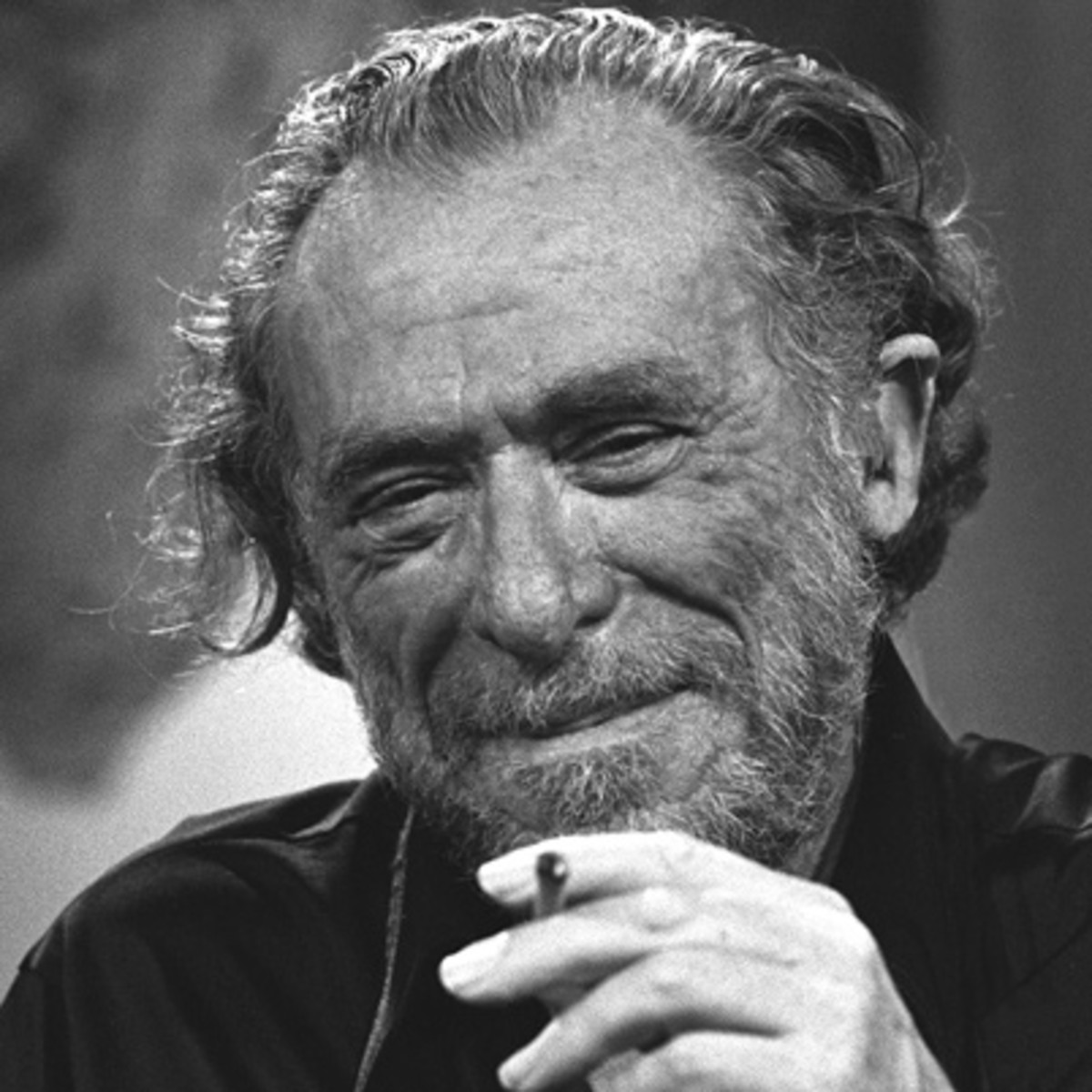
Charles Bukowski
Biography
Charles Bukowski was born on August 16, 1920, in Andernach, Germany. In America, Bukowski worked odd jobs to support himself while writing. He published his first story at 24, and started writing poetry when he was 35. In 1959, he published his first poetry book. Bukowski went on to write more than 45 books—including poetry, short stories and novels. He died March 9, 1994, in San Pedro, California.
Early Life
Born in Germany, Bukowski was brought to the United States at the age of two. His father believed in firm discipline and often beat Bukowski for the smallest offenses, abuse Bukowski detailed in his autobiographical coming-of-age novel, Ham on Rye (1982). A slight child, Bukowski was also bullied by boys his own age, and was frequently rejected by girls because of his bad complexion. “When Bukowski was 13,” wrote Ciotti, “one of [his friends] invited him to his father’s wine cellar and served him his first drink of alcohol: ‘It was magic,’ Bukowski would later write. ‘Why hadn’t someone told me?’”
In 1939, Bukowski began attending Los Angeles City College, dropping out at the beginning of World War II and moving to New York to become a writer. The next few years were spent writing and traveling and collecting numerous rejection slips. By 1946 Bukowski had decided to give up his writing aspirations, embarking on a ten-year binge that took him across the country. Ending up near death in Los Angeles, Bukowski started writing again, though he would continue to drink and cultivate his reputation as a hard-living poet. He did not begin his professional writing career until the age of thirty-five, and like other contemporaries, began by publishing in underground newspapers, especially in local papers such as Open City and the L.A. Free Press. “Published by small, underground presses and ephemeral mimeographed little magazines,” described Jay Dougherty in Contemporary Novelists, “Bukowski has gained popularity, in a sense, through word of mouth.” “The main character in his poems and short stories, which are largely autobiographical, is usually a down-and-out writer [Henry Chinaski] who spends his time working at marginal jobs (and getting fired from them), getting drunk and making love with a succession of bimbos and floozies,” related Ciotti. “Otherwise, he hangs out with fellow losers—whores, pimps, alcoholics, drifters.”
Works
Bukowski wrote more than forty books of poetry, prose and novels. Flower, Fist, and Bestial Wail (1959), Bukowski’s first book of poetry, covers the major interests and themes that occupy many of his works, especially “the sense of a desolate, abandoned world,” R. R. Cuscaden pointed out in the Outsider. In addition to desolation, Bukowski’s free verse tackles the absurdities of life, especially in relation to death. “Bukowski’s world, scored and grooved by the impersonal instruments of civilized industrial society, by 20th-century knowledge and experience, remains essentially a world in which meditation and analysis have little part,” asserted John William Corrington in Northwest Review. The subject matter of this world is drinking, sex, gambling, and music; the Bukowski style, however, is “a crisp, hard voice; an excellent ear and eye for measuring out the lengths of lines; and an avoidance of metaphor where a lively anecdote will do the same dramatic work,” maintained Ken Tucker in the Village Voice. It Catches My Heart in Its Hands (1963) collects poetry written between the years of 1955 and 1963. “Individual poems merge to form together a body of work unrivalled in kind and very nearly unequalled in quality by Bukowski’s contemporaries,” stated Corrington. Over the course of thirty years, Bukowski published an astonishing number of collections of poetry and prose, as well as many novels. Kenneth Rexroth asserted in the New York Times Book Review that Bukowski “belongs in the small company of poets of real, not literary, alienation.”
